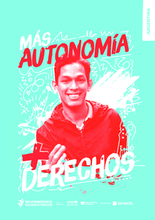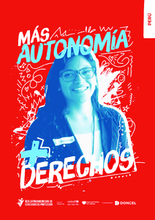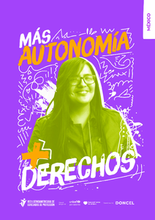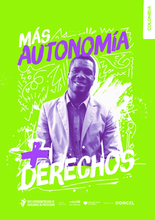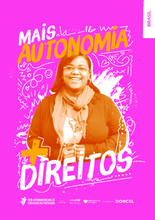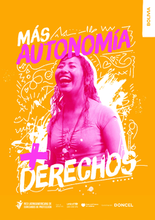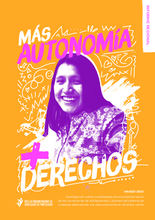This page contains documents and other resources related to children's care in the Americas. Browse resources by region, country, or category.
Displaying 391 - 400 of 1438
This chapter provides a review and analysis of the “best interests of the child” standard in foster care policy and practice.
This survey of the statutory provisions and case law of all 50 states [of the USA] and the District of Columbia includes the rights of children to parental support, inheritance, and familial association remaining upon termination of parental rights.
This study examines the effects of child welfare, mental health, and drug/alcohol system experiences on jail involvement, as mediated by juvenile justice placement, for Black and White youth/young adults.
En este informe se presentan los resultados de la investigación llevada adelante en Argentina que tuvo por objetivo construir información sobre las principales políticas, medidas y acciones que se desarrollan a nivel regional orientadas a acompañar el egreso de adolescentes y jóvenes del sistema del cuidados alternativos e indagar respecto de su eficacia, efectividad, sostenibilidad y adecuación a un enfoque de derechos.
En este informe se presentan los resultados de la investigación llevada adelante en Perú que tuvo por objetivo construir información sobre las principales políticas, medidas y acciones que se desarrollan a nivel regional orientadas a acompañar el egreso de adolescentes y jóvenes del sistema de cuidados alternativos e indagar respecto de su eficacia, efectividad, sostenibilidad y adecuación a un enfoque de derechos.
En este informe se presentan los resultados de la investigación llevada adelante en México que tuvo por objetivo construir información sobre las principales políticas, medidas y acciones que se desarrollan a nivel regional orientadas a acompañar el egreso de adolescentes y jóvenes del sistema de cuidados alternativos e indagar respecto de su eficacia, efectividad, sostenibilidad y adecuación a un enfoque de derechos.
En este informe se presentan los resultados de la investigación llevada adelante en Colombia que tuvo por objetivo construir información sobre las principales políticas, medidas y acciones que se desarrollan a nivel regional orientadas a acompañar el egreso de adolescentes y jóvenes del sistema de cuidados alternativos e indagar respecto de su eficacia, efectividad, sostenibilidad y adecuación a un enfoque de derechos.
Este relatório apresenta os resultados da pesquisa realizada no Brasil pelo Instituto Fazendo História com objetivo construir informações sobre as principais políticas, medidas e ações desenvolvidas no nível regional, visando acompanhar a saída de adolescentes e jovens do sistema de cuidados alternativos e indagar a sua eficácia, efetividade, sustentabilidade e adaptação a uma abordagem de direitos.
En este informe se presentan los resultados de la investigación llevada adelante en Bolivia que tuvo por objetivo construir información sobre las principales políticas, medidas y acciones que se desarrollan a nivel regional orientadas a acompañar el egreso de adolescentes y jóvenes del sistema de cuidados alternativos e indagar respecto de su eficacia, efectividad, sostenibilidad y adecuación a un enfoque de derechos.
El presente informe reúne los hallazgos principales de una investigación de carácter exploratorio-descriptivo que ha sido desarrollada en seis países de la región (Argentina, Bolivia, Brasil, Colombia, México y Perú). El objetivo fue documentar y analizar las políticas, estrategias y acciones desarrolladas para promover y acompañar la transición de adolescentes desde el sistema de cuidados alternativos hacia la vida autónoma.


